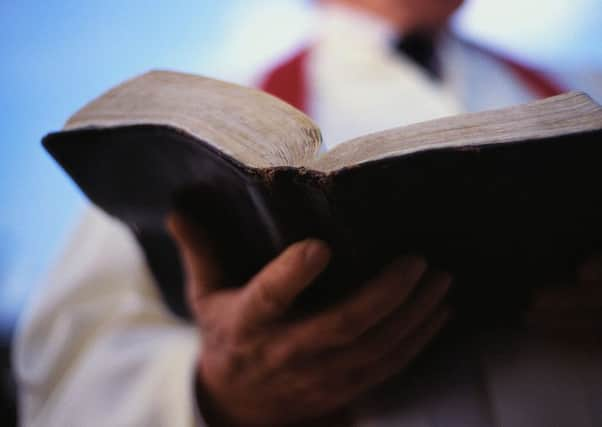Election: Ben Lowry '“ A growing cultural confusion is affecting both unionist and nationalist voters


To understand why, go back last year to one of the most important individual election results ever to have happened in the Province.
Last year’s East Belfast general election result shattered the myth that there is not much of a liberal pro-Union vote in Northern Ireland.
Advertisement
Hide AdAdvertisement
Hide AdA single unionist candidate, deliberately chosen as a moderate, in one of the most Protestant seats in the land only beat the Alliance incumbent Naomi Long by 19,500 votes to 17,000.
The assumption that moderate Ulster Unionists would flock to the DUP in a choice between them and Alliance was tested almost to destruction – and even when the candidate was an atypical DUP man, Gavin Robinson.
That result came about not so much because Northern Ireland has changed – it has been like this for a long time – but because the Troubles and its aftermath have disguised the new attitudes that have swept the western world, including here.
Social change used to be things such as couples living together before marriage. Now it is things such as same-sex marriage, which was a laughable notion 20 years ago and is now on the verge of happening in the shrinking number of first world countries where it is not already in place.
Advertisement
Hide AdAdvertisement
Hide AdA seminal moment for my understanding of cultural attitudes in Northern Ireland was a Castlereagh by-election in 1990 on the Sunday opening of leisure facilities. The hardline Christian position of rejecting such opening was rejected 85% to 15% – and in a council where the DUP had an overall majority.
Yet for 25+ years after that clear result, Protestants in overwhelmingly unionist areas have often been depicted as strict Bible adherents who would widely back any fundamentalist restriction.
This is because observers have confused two things: support for unionism, which remains very strong, particularly amid the rise of Sinn Fein, and support for the cultural worldview of some of its leading political exponents.
But if unionism was to try a modern-day cultural test, along the lines of Castlereagh 1990, and to put to voters whether (for example) they want school children to be taught that the Earth is 6,000 years old, I bet they would find that the ratio today, in Northern Ireland in 2016, would be 97% to 3% against – and that is among unionists, let alone the wider community.
Advertisement
Hide AdAdvertisement
Hide AdOne survey found that DUP voters showed the lowest levels of support for gay marriage of any group – and even they were 50% in favour.
So why is this election so significant?
Because it will show whether voters are prepared to edge further from Orange-Green.
I have little doubt that the DUP and Sinn Fein will be the largest parties, and probably in that order, but my hunch is that ‘others’ will do rather well – Alliance, Greens, and independents such as John McCallister. I have no idea who will win what – experts like Nicholas Whyte are better at predictions – but I think smaller parties will gain from growing dissatisfaction with Orange-Green. I also think that the wider global trend towards disaffection with big parties will be evident here too.
This is not just an issue for unionists. Nationalists are also badly caught in the cultural confusion. Unionists almost to an MLA oppose gay marriage and nationalists almost to an MLA support it, but both have electorates that are utterly divided on the issue. There is much higher Catholic opposition to gay marriage than nationalist MLAs reflect.
Advertisement
Hide AdAdvertisement
Hide AdWe almost need six broad political groupings here – an Orange grouping and a Green one, a culturally progressive grouping and a conservative one and an economically left grouping and a right one.
I often wonder about a Christian Party when I hear people as diverse as Nuala O’Loan and Peter Lynas talk about abortion or euthanasia. These huge issues will if anything grow in prominence. Such a party might sound absurd but if you are a Christian who feels that your core values face extinction, then organising politically along those lines makes sense, particularly if the constitutional question is no longer to the fore.
The political structure here is a long way from my mooted six core groupings. But next weekend we will see if there is any further trend towards such classifications, and away from party structures that are increasingly distant from the populations they represent.